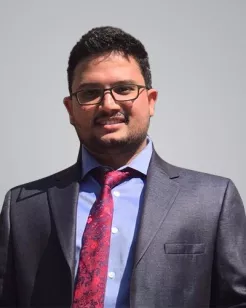Medical Oncology is a method of treating cancer using chemotherapy, hormonal therapy, biological therapy, and targeted therapy. Medical oncology is often employed in combination with other treatment methodologies like surgical oncology or radiation oncology. A medical oncologist coordinates with other specialists and is often the main healthcare provider for someone who has cancer.
Cancer Clinics provides daycare medical oncology treatment with a unique patient-centric approach. Our panel of physicians consists of the top medical oncologists in India who also leverage the tumour board. A tumour board is a group of doctors of multiple specialities who come together to discuss every case and plan the next course of action. A tumour board approach improves the outcome of treatment by providing patients a seamless blend of multiple disciplines in oncology.
Our clinic is also uniquely designed to support medical oncology procedures in the most optimised and hassle-free manner. With the latest equipment and best protocols, we make it conducive for patients and caregivers to receive the best treatment at an affordable price.
Our Doctors
We have some of the best specialists from around the world, they bring years of experience and offer evidence-based treatment to ensure the best care for you.






